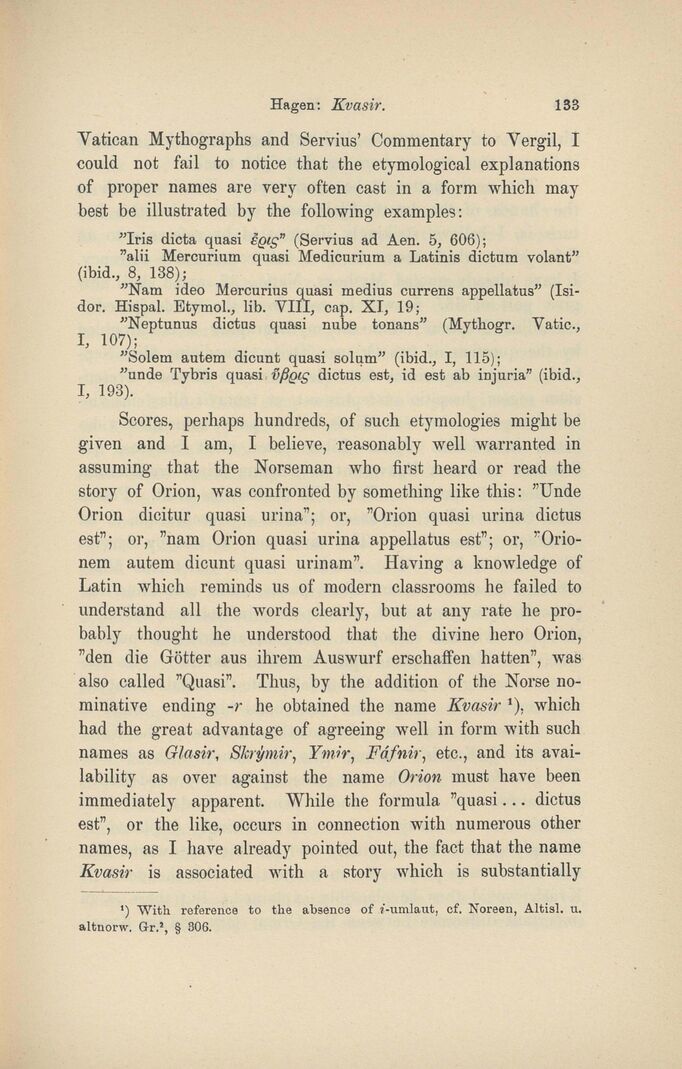
Full resolution (JPEG) - On this page / på denna sida - Sidor ...

<< prev. page << föreg. sida << >> nästa sida >> next page >>
Below is the raw OCR text
from the above scanned image.
Do you see an error? Proofread the page now!
Här nedan syns maskintolkade texten från faksimilbilden ovan.
Ser du något fel? Korrekturläs sidan nu!
This page has never been proofread. / Denna sida har aldrig korrekturlästs.
Hagen: K vasir, 133
Vatican Mythographs and Servius’ Commentary to Vergil, I
could not fail to notice that the etymological explanations
of proper names are very often cast in a form which may
best be illustrated by the following examples:
"Iris dicta quasi £Qign (Servius ad Aen. 5, 606);
”alii Mercurium quasi Medicurium a Latinis dictum volant”
(ibid., 8, 138);
”Nam ideo Mercurius quasi medius currens appellatus” (Isi-
dor. Hispal. Etymol., lib. V III, cap. X I, 19;
”Neptunus dictus quasi nube tonans” (Mythogr. Vatic.,
I, 107);
”Solem autem dicunt quasi solum” (ibid., I, 115);
”unde Tybris quasi vßQtg dictus est, id est ab injuria” (ibid.,
I, 193).
Scores, perhaps hundreds, of such etymologies might be
given and I am, I believe, reasonably well warranted in
assuming that the Norseman who first heard or read the
story of Orion, was confronted by something like this: ”Unde
Orion dicitur quasi urina”; or, ”Orion quasi urina dictus
est”; or, ”nam Orion quasi urina appellatus est”; or, ”Orio-
nem autem dicunt quasi urinam”. Having a knowledge of
Latin which reminds us of modern classrooms he failed to
understand all the words clearly, but at any rate he pro-
bably thought he understood that the divine hero Orion,
”den die Götter aus ihrem Auswurf erschaffen hatten”, was
also called ”Quasi”. Thus, by the addition of the Norse no-
minative ending -r he obtained the name Kvasir *), which
had the great advantage of agreeing well in form with such
names as Glasir, Skrýmir, Ymir, Fáfnir, etc., and its avai-
lability as over against the name Orion must have been
immediately apparent. While the formula ”quasi... dictus
est”, or the like, occurs in connection with numerous other
names, as I have already pointed out, the fact that the name
Kvasir is associated with a story which is substantially
*) With reference to the absence of î-umlaut, cf. Noreen, Altisl. u.
altnorw. G
-r.% § 306.
<< prev. page << föreg. sida << >> nästa sida >> next page >>